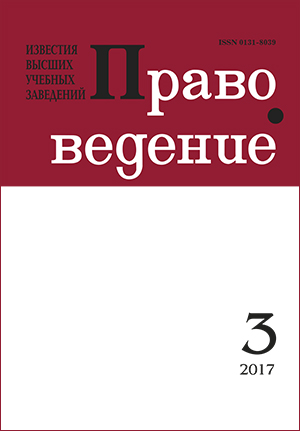Judges, political power and general interest
Abstract
The article is devoted to the new status of judges in the system of separation of powers and the important role they play in the implementation of political power. The author finds the reasons for these changes in raising the level of legitimacy of judges while maintaining their constitutional and legal status. In the author’s opinion, legitimacy and social acceptability of actions of a political actor is based simultaneously on the person’s ideas about their duty to obey and their voluntary participation in solving common problems. As conditions of the power legitimacy, the author notes its ability to create legal norms, to proclaim moral values and to stabilize the political system. Having examined specific judicial decisions of the courts of France, Belgium and Canada, as well as the Court of Justice of the European Union over the past twenty years, the author comes to the conclusion about the availability of all three conditions of legitimacy of modern judges as political representatives of the people. They are closer to private persons than other political actors because they do not operate with abstract categories, but rather respond to specific complaints of citizens. At the same time, the author warns that there is a risk of preference of individual interests to the general interest in the judicial procedure which can lead to the rupture of social relations in a democratic society. Finally, he concludes that the careful attitude to the role of the judge as a political representative is very important.
Keywords:
judge, political power, representative, legitimacy, Constitution, rule, democracy, rights, society
Downloads
References
Downloads
Published
How to Cite
Issue
Section
License
Articles of "Pravovedenie" are open access distributed under the terms of the License Agreement with Saint Petersburg State University, which permits to the authors unrestricted distribution and self-archiving free of charge.




